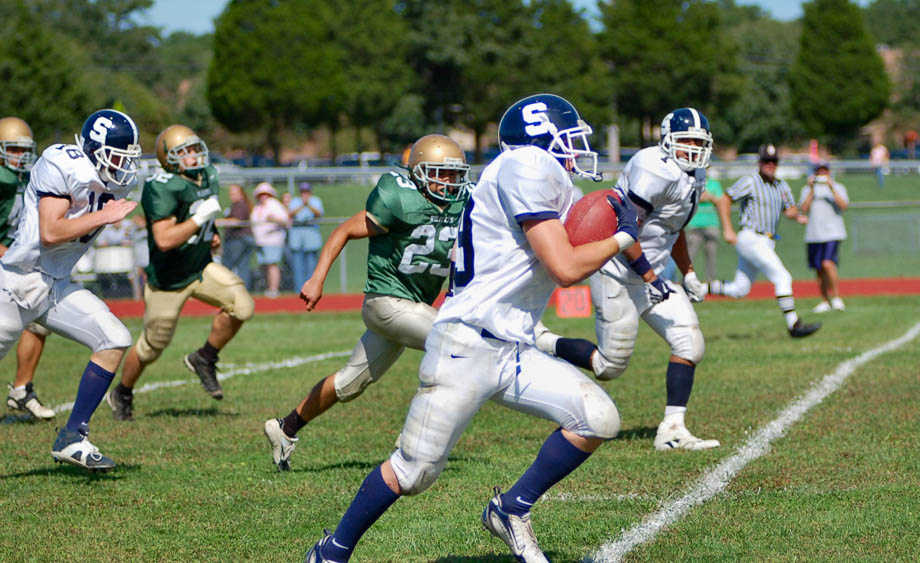
A concussion is a type of traumatic brain injury (TBI) that causes a temporary loss of normal brain function. It results from a blow to the head or a violent shaking of the head or upper body. The effects of a concussion can be serious but are usually temporary, and most people fully recover.
One concussion usually leaves no permanent damage to your brain. However, repeated concussions may cause structural changes to your brain that cause a significant loss of function. Multiple concussions are believed to cause Chronic Traumatic Encephalopathy (CTE), a buildup of abnormal proteins that damage brain tissue and cause the death of brain cells. [2]
What causes a concussion?
Falls, car accidents, sports collisions or head injuries are the most common causes of concussions. But they can also be caused by a hit or blow to your body that jerks your head forcefully forward, backward or to the side: whiplash injuries from a car accident or the blast from an explosive force, such as in combat injuries, for example.
A concussion occurs when your brain bounces or twists inside your skull. Brain cells may bruise or stretch, causing harmful chemical changes that interfere with brain activity [1]. Even though a concussion is considered a mild brain injury, you should take it seriously to avoid further harm to your brain. Most people who get a concussion will recover quickly, but symptoms may persist for a year or more for some patients.
What are the symptoms of a concussion?
If you receive a concussion, the symptoms may not be apparent immediately after the injury. They may take hours, days, or weeks to appear and may include:
- A headache that worsens or persists over time
- Severe neck pain
- Loss of consciousness that’s longer than 30 seconds
- Tinnitus that doesn’t stop (ringing in the ears)
- Nausea
- Repetitive vomiting
- Fluid or blood draining from the ears or nose
- Problems sleeping, fatigue, drowsiness, or inability to stay awake
- Increasing confusion or disorientation
- Dizziness (recurring or long-lasting)
- Blurred or loss of vision
- Eye pupils of unequal sizes
- Inability to remember what happened just before and after the event
- Inability to concentrate, forgetfulness, memory problems, or difficulties with word finding
- Slurred or other changes to speech
- Dazed appearance
- Slow to answer questions
- Weakness, tingling, or burning sensation in arms or legs
- Loss of balance or coordination
- Seizures or convulsions
- Personality changes such as becoming increasingly restless, irritable, or combative
- Sensitivity to light and noise
- Disorders of smell and taste
If you are experiencing any of these symptoms, you should seek care immediately.
How is a concussion treated?
Because recovery from a concussion can be a complex process, your healthcare team should have specific expertise in concussion care. If your symptoms are not explicitly addressed and properly managed, your recovery may take significantly longer.
If you believe you have a concussion, see your doctor immediately for a diagnosis. They will evaluate your vision, balance and eye movements, ask questions about your symptoms, and ask about the event that caused your concussion. If your doctor suspects you have a serious concussion, they may order a CT scan of your brain.
For any concussion, the brain needs at least a few days to rest, physically and mentally. Intense thinking and physical activity can make your symptoms worse.[3] You should refrain from doing any physical activity, reading, writing or using electronic devices such as your TV, smartphone, game console or computer until you improve. Get proper sleep and take naps if needed, but complete bed rest is unnecessary. When you begin to feel better, you should slowly resume your normal activities and rest when you need it until you are symptom-free.
If your symptoms persist, you may need concussion therapy to recover fully. Your concussion therapy may include:
- A physiatrist to manage your medical care
- Physical therapy
- Vision therapy
- Nutrition counseling
- Impact testing
- Speech therapy
- Balance therapy
- Neuropsychology
- Occupational therapy
- Headache management, including Botox® injections, occipital nerve blocks or trigger point injections.
How long does it take to recover from a concussion?
Every person’s concussion is unique, as are its symptoms. Generally, most concussion symptoms resolve within two to three weeks. However, your recovery may take months or longer if left untreated or improperly managed.
For more information on concussion rehabilitation at Good Shepherd Rehabilitation, visit our concussion treatment page or call 1.888.44.REHAB (73422).
[1] National Institutes of Health, Caring For Concussions
[2] Centers For Disease Control & Prevention, Traumatic Brain Injury and Concussion
[3] University Of Michigan Health, Concussion Treatment and Recovery
